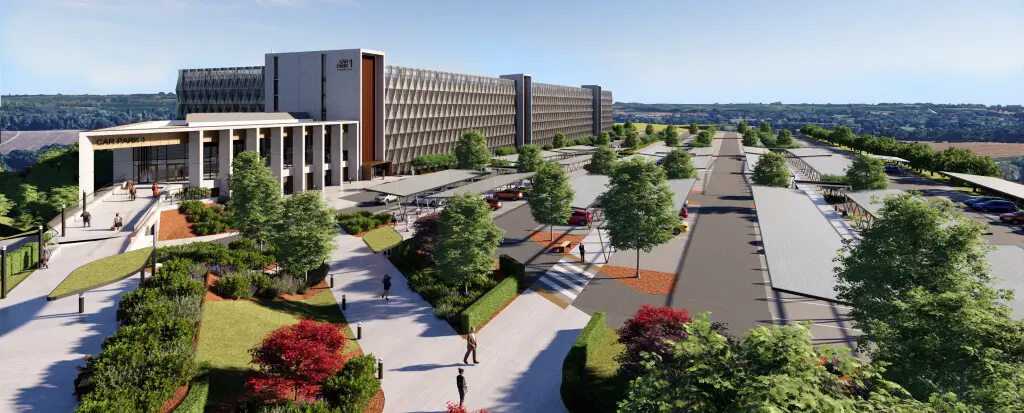Plans have been submitted for the construction of multi-storey car parks in Solihull, close to HS2’s Interchange Station. Solihull Council established Urban Growth Company (UGC), a local authority special delivery vehicle for the project. The UGC has submitted a hybrid planning application to build a first parking lot and is seeking outline approval for a second.
The multi-storey car parks in Solihull would serve a new location known as the UK Central Hub. It is situated at the 140-hectare Arden Cross development site on the outskirts of Solihull, close to the NEC exhibition centre.
Read Also: French Hill tunnels project in Jerusalem to be complete in 2023
In order to free up 30 hectares of land for high density development next to the station to build apartments and offices around the station, UGC wants to build multi-story buildings instead of the 7,500 surface parking spaces that HS2 Ltd previously had permission for.
Design and build contractor Vinci Construction UK has already been selected, with additional planning and architectural support coming from Cundall, Associated Architects, and Fira.
Design overview of the multi-storey car parks in Solihull
To support the opening of HS2, the first of the multi-storey parking structures would be built between 2029 and 2033. In addition to 500 spaces on the ground level, the building would have 4,000 spaces spread over nine floors. Furthermore, two of them would be below ground level.
This is made possible by the decision to place the parking lots on the site of a defunct quarry. Thus it lessens their visual impact and makes use of a space that would have been backfilled otherwise. If necessary, a second multi-story building would be eight stories tall and include a basement level. This would be situated where the first phase surface car park was and have about 3,000 spaces. This would be built in time for the start of the later phases of HS2 that are currently being planned.
The ideas for both parking lots consider the requirements for charging electric vehicles now and in the future, as well as connected autonomous vehicles. Since March 2022, numerous offline and online engagement initiatives have been carried out. Morever, feedback has been incorporated into the final applications. In November 2022, Solihull Council is anticipated to make a decision.

Leave a Reply